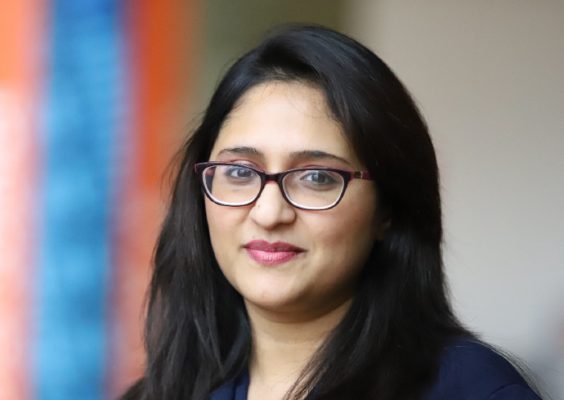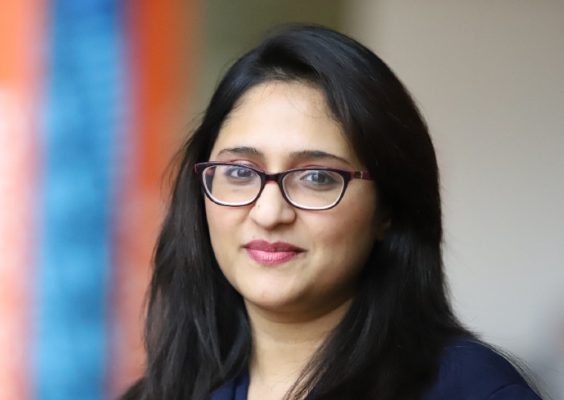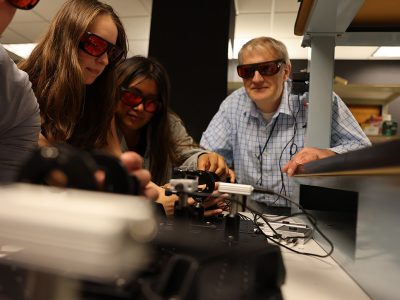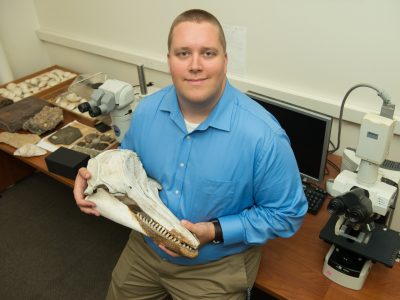 Farzana Rahman, an associate teaching professor of electrical engineering and computer science in the College of Engineering and Computer Science (ECS), was honored by the Technology Alliance of Central New York (TACNY) as the organization’s College Educator of the Year at the 23rd Celebration of Technology awards banquet in October.
Farzana Rahman, an associate teaching professor of electrical engineering and computer science in the College of Engineering and Computer Science (ECS), was honored by the Technology Alliance of Central New York (TACNY) as the organization’s College Educator of the Year at the 23rd Celebration of Technology awards banquet in October.
Rahman joined the faculty in spring 2020. Since then, she has taught critical core gateway courses involving foundational knowledge of the computing discipline to all three majors of the electrical engineering and computer science department.
Central to her teaching approach is an active learning style, which pairs hands-on programming exercises with challenging projects that demand students to cultivate skills in problem-solving, debugging and general software engineering. She is dedicated to creating equitable education and learning experiences for all students by providing inclusive educational opportunities that support women, genderqueer, nonbinary, underrepresented and minority students.
As a diversity spokesperson of the department, Rahman spearheads various diversity, equity, inclusion and accessibility initiatives. One of her most impactful initiatives is Research Exposure on Socially Relevant Computing (RESORC), funded by Google Research, to increase both the exposure and visibility of undergraduate research.
With more than 200 students participating in RESORC over the past three years, she has designed and facilitated multiple virtual workshops to help undergraduate students develop computing identity, research skills and practice teaching strategies and explore research topics in the computing and engineering domains. The project formalizes best practices in research experiences to reach more students, particularly women from historically excluded groups, and prepares them for graduate study.
Rahman’s research and mentoring initiatives have been supported by many funding agencies, including the National Science Foundation, Google, the National Center for Women and Information Technology (NCWIT), Google TensorFlow and the American Association of Colleges and Universities to develop effective pedagogy in undergraduate computer science education.
She’s won the NCWIT Extension Services Award, ABI Systers PIO (Pass-It-On) Award, Google ExploreCSR Award and NCWIT Educator Award. She published numerous peer-reviewed articles, including in the Special Interest Group of the Association of Computing Machinery, Institute of Electrical and Electronics Engineers (IEEE) RESPECT and IEEE Frontiers in Engineering Education, the American Society for Engineering Education conference.
Her overarching research interests are:
- exploring the impact of active learning pedagogy in undergraduate computing courses;
- the effectiveness of online and inverted classrooms;
- how different pedagogical practices can increase underrepresented student performance in computing courses;
- how effective re-entry pathways can facilitate the transition of returning women in computing-based discipline; and
- best practices in undergraduate research.



